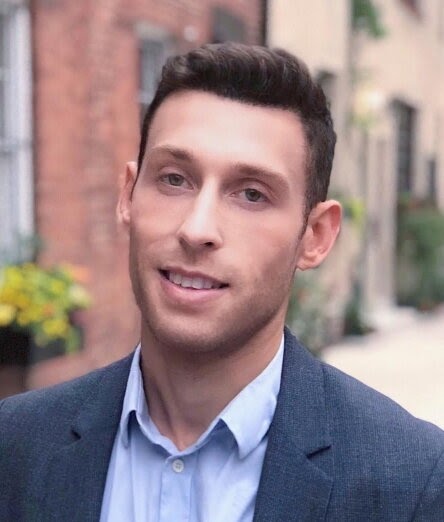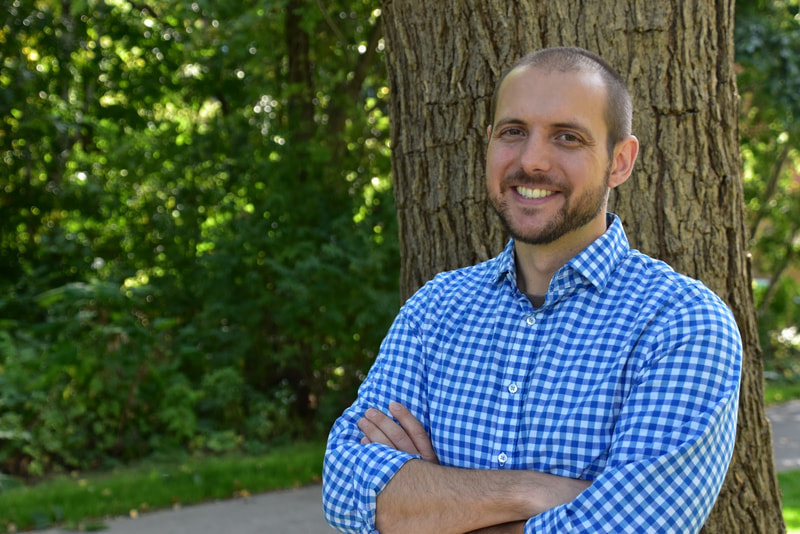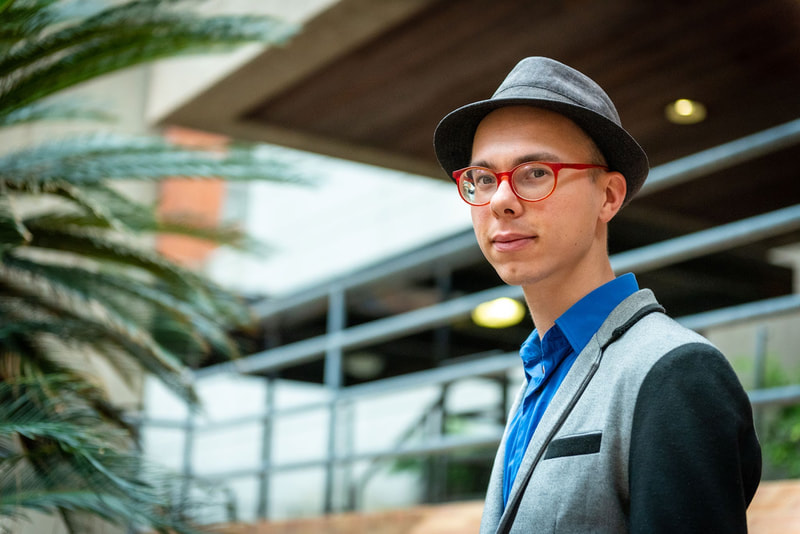OHBM 2020 Diversity Round Table: Intersection between Neuroscience and the LGBTQ+ community6/18/2020 Lee Jollans and the OHBM Diversity and Inclusivity Committee. Edited by AmanPreet Badhwar At the 2020 virtual meeting, OHBM will, for the second time, host a Diversity Round Table. This year the round table will feature discussions on the intersection between Neuroscience and the Lesbian, Gay, Bisexual, Transgender, and Queer (LGBTQ+) community. The four speakers will outline the specific challenges LGBTQ+ individuals face working in STEM (Jon Freeman), insights into the possible developmental bases of sexuality and gender (Doug VanderLaan), the current body of research into transgender identity (and its limitations), and the challenges and considerations that are crucial for carrying out good sex and gender research (Grace Huckins and Jonathan Vanhoecke). Jon Freeman, New York University (top left), Doug VanderLaan, University of Toronto (top right), Grace Huckins, Stanford University (bottom left), and Jonathan Vanhoecke, Humboldt University (bottom right) While studies suggest that the percentage of students interested in pursuing a doctorate is significantly higher among LGBTQ+ students (Greathouse et al., 2018), LGBTQ+ individuals have been shown in numerous studies to face unique challenges in STEM. Although specific data about Neuroscience and related fields is lacking (which is part of the problem), LGBTQ+ people are less represented in STEM fields than statistically expected, more frequently encounter non-supportive environments, and leave STEM fields at a high rate (Freeman, 2018). Moreover, one study suggests that more than 40% of LGBTQ+ people in STEM are not open about their LGBTQ+ identity with colleagues (Yoder & Mattheis, 2016). In his talk “LGBTQ Challenges in STEM: The Need for Data and Policy change”, Jon Freeman will outline how bias, harmful stereotypes, and unwelcoming environments can result in LGBTQ+ scientists leaving STEM, and will propose steps and policy changes we can implement to counteract these effects.
With a disproportionately low percentage of LGBTQ+ researchers, and rigid and outdated norms used to assess sex, gender, and sexuality, research about LGBTQ+ individuals has historically suffered from flawed data collection, and oversimplified, inaccurate, or outright harmful framing of research findings. In her talk “Trans Neuroscience: Stuck in 1995”, Grace Huckins will explain how studies examining the brains of transgender individuals are stuck in an outdated paradigm and why it is so crucial that this paradigm change. Gender and sexuality are complex and interconnected, and attempting to examine them in isolation ignores the lived experiences of LGBTQ+ individuals. Cultural perceptions of masculinity and femininity, and social visibility and acceptance affects not only how LGBTQ+ people are treated and perceived, but also how research is conducted in different cultural contexts. Doug VanderLaan will describe findings from a neuroimaging study of LGBTQ+ individuals in Thailand, highlighting clues as to the relationship between early brain development, gender and sexuality in his talk “Sexual Orientation and Gender Identity Development: Insights from Thai gay men and sao praphet song”. Research about marginalized groups by necessity always has a societal dimension – not only regarding the different experience of the world which marginalized individuals encounter, but also regarding the implications that findings might have for policy, stereotypes, and lived experience for the entire society. How can we disentangle ‘otherness’ from sociobiological variety? How to distinguish brain effects from effects of sociological background? Jonathan Vanhoecke will outline in their talk how brain research in the transgender community provokes sociological questions about sex and gender in other neuroscience fields. “The gap between neuroimaging of gender and gender studies of the brain: New perspectives from transgender research”. We hope you’ll join us for this topical and thought-provoking roundtable, and we look forward to an interesting discussion! The Diversity and Inclusivity Committee focuses on a different topic for their symposium each year. Topic and speaker suggestions for upcoming meetings are welcome.
0 Comments
Your comment will be posted after it is approved.
Leave a Reply. |
BLOG HOME
Archives
January 2024
|




 RSS Feed
RSS Feed